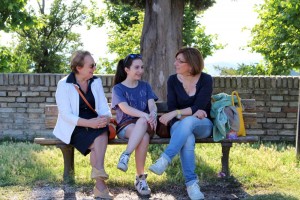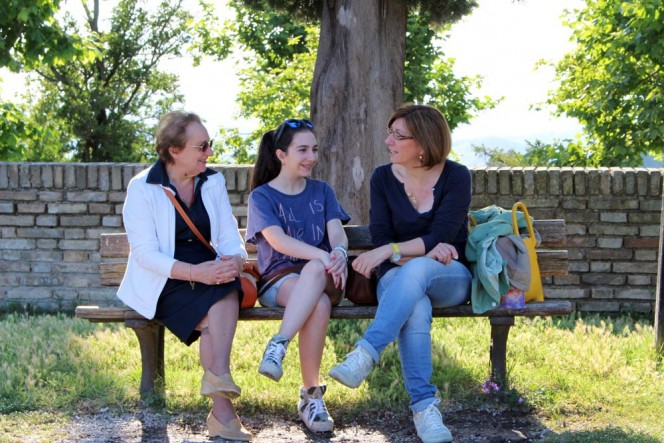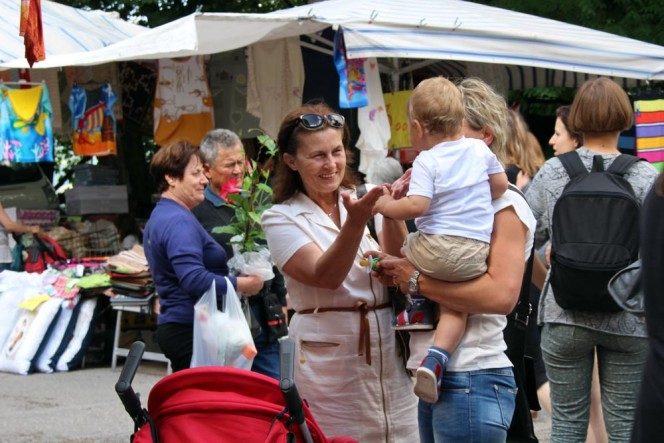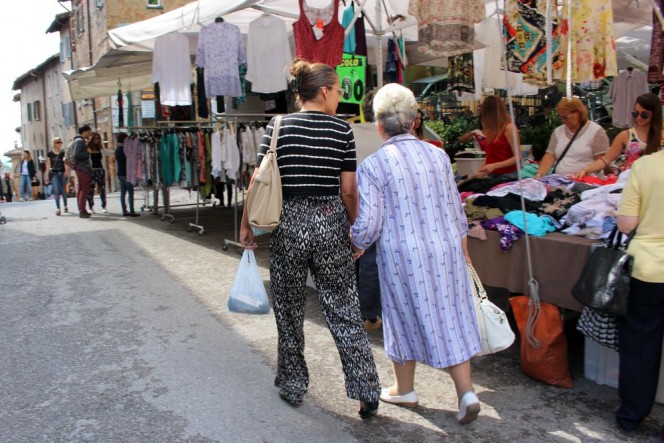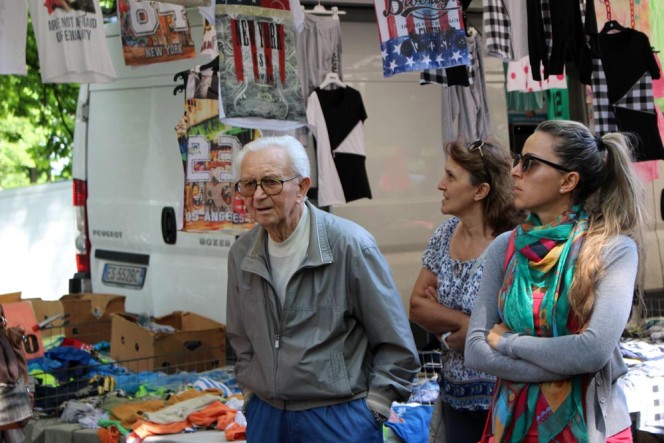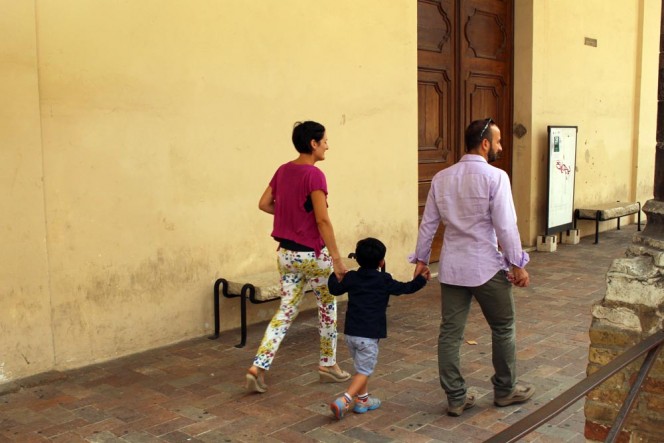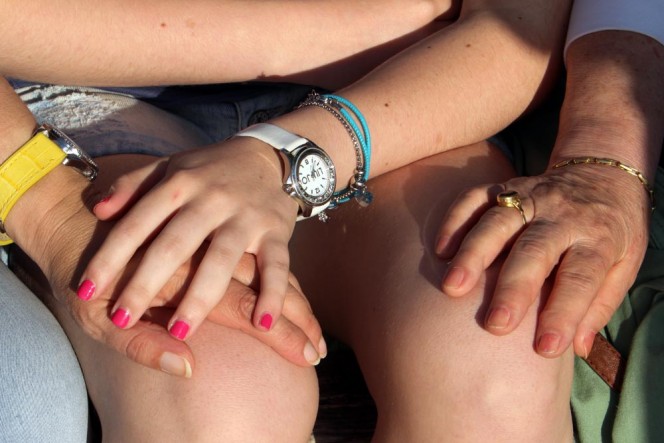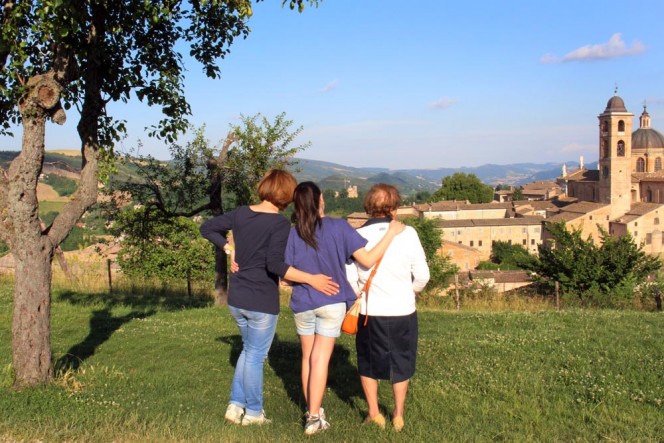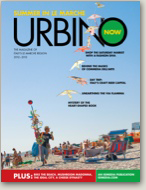Italian Family Circles - Urbino Project 2015

For families like the Spadonis, the generations still stick together
URBINO, Italy – The Cathedral pews are half empty for the 10:30 a.m. Sunday Mass, but the three Spadoni women are there as usual sitting side by side: the grandmother in a conservative dark dress suit; the daughter-in-law and her teenage daughter both wearing denim.
All three recite “Thanks be to God” memorized since childhood: Rendiamo grazie a Dio. Their voices join with others to become a booming echo up in the 165-foot high Duomo, as elegant and older than the dome of the U.S. Capitol. Then a choir turns this echo into heavenly singing, including the voice of the Spadoni daughter-in-law’s sister.
“It is a beautiful and close family,” Donatella Spadoni said later in Italian while looking at both her mother-in-law and daughter. All three women have brown hair that glistens in the sunlight and a smile that stretches wide. One can tell by the way they interact how close they are.
Donatella Spadoni, an Urbino native, currently resides about five minutes away in Gallo di Petriano with her husband, Giorgio, and 14-year-old daughter, Ludovica. Donatella and Giorgio have been married 20 years and have always remained close to their extended family, especially Giorgio’s mother, Maria Spadoni.
Maria, one of four siblings, has lived in Urbino her entire life. She has four children who all remain in close contact with her and blessed her with eight grandchildren.
“Maria is a very special grandmother because she loves each one of her nieces and nephews in the same way,” Donatella said.
Italians have traditionally remained closer to their parents when compared to Americans. According to the Pew Research Center, 64 percent of Italians remain in contact with their parents at least once a day, whereas only 38 percent of Americans contact their parents at least once a day.
Lucia Silverstrini, 38, an Urbino native who spent two years in the United States teaching Italian at the University of Tennessee in Knoxville, has seen this difference first hand.
“I think we (Italians) are more attached to our grandparents because we all live in the same town,” said Silverstrini, who works in the city’s tourist office.
She understands the difficulty of staying in close contact with grandparents in the United States because American families tend to live so far apart.
Silverstrini thinks the relationship that Italian grandparents have with their grandchildren is beneficial. “They teach their grandchildren so many interesting things and are so affectionate.”
The relationship between Donatella and her mother-in-law, Maria, is especially striking. Different from most mother-in-law and daughter-in-law relationships, Maria and Donatella are very close.
“We really respect each other,” Maria said.
Donatella smiled. “We don’t butt heads like traditional mother-in-law and daughter-in-law relationships do.”
Family has always been important to the Spadonis. It has been a value all of their parents have passed down to their children.
“I can see the value of family in my daughter and my nieces and nephews because they still dedicate time to family even though they are busy,” said Donatella. “They even introduce their girlfriends and boyfriends to their grandparents because it is important to them. It is the small things that make the difference.”
Their favorite memories growing up revolve around Christmas. Christmas is the time of year when their family is the closest.
“Christmas has always been the best time of the year for families to get together, ever since my mother-in-law was young,” said Donatella.
The Spadoni Christmas happens in two phases. They begin by meeting at Donatella’s parents’ house for lunch and in the late afternoon move to Maria’s house to continue the festivities.
The three Spadoni women acknowledge with some sadness that Italian families are decreasing in size. The total fertility rate of Italy is only 1.42 children for every woman. And occasions in which families get together are becoming less common. So Christmas is the time for families to reunite.
But staying close as a family is not a challenge for the Spadonis, they said. And they hope it never will be.
They all get together for lunch on Sundays – brothers, sisters, nieces and nephews.
“Sunday lunch is special because it brings our family together,” said 14-year-old Ludovica.
Eight Spadoni family members usually attend these Sunday lunches, which last approximately four hours. They will even occasionally meet on Saturday afternoons to prepare food for the lunch.
Sunday lunch typically consists of a first course, second course, side dish and dessert, most of which the Spadonis make by hand.
Maria, Donatella and Ludovica also have a tradition of going to Mass together on Sunday. They go to the Duomo – Urbino’s historical cathedral – because that is where Maria went to church as a child.
One aspect of their life that may be affected by the changing Italian culture is the decision of where Ludovica is going to college. Will she stay home or leave? Traditionally Italian children choose to stay close to home for their studies because they want to be near their families. However, that tradition is slowly changing.
Lucia Silverstrini, from the tourist office, noted that it is becoming more common for kids to get their bachelor’s degree in Urbino and then leave Italy to go get their master’s degree somewhere else in Europe, often in England, Germany or France.
“I don’t think people in the U.S. mind moving as much because there are more opportunities in the United States,” Lucia said. “Italians don’t think of moving that much.”
“Going away to school is important for girls because in today’s society women must have the possibility of having their own economic independence,” Donatella said.
“If I need to go away to study what I want, I’ll do that,” Ludovica added, “even though it would be difficult to leave my family.”
Although Donatella understands her daughter’s concerns, she continues to encourage her to pursue her dreams because she wants Ludovica to have as many opportunities as possible.
“It is very important to build your own future,” said the mother. “You can’t always stay in your hometown. You have to experience something else. If she wants to and we as parents can afford it, she has to go away for studying.”
The Spadonis know they are lucky to have a family that is so close.
“If your family is united, everything you do in life is going to be positively affected,” Donatella said with another quick smile. “It’s as simple as that.”
Slideshow

See the video “Dance School” produced by Ashley Manske & Courtney Bochicchio.





